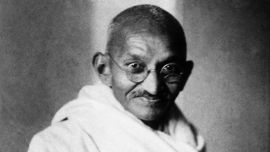There was a time when virtually everybody except the economists defined the economy by its bottom line – growth was good and recession bad, as simple as that. Yet quite apart from what climate change alarmists might have to say about that, things are no longer so binary or linear – least of all when trying to size up the Argentine economy today.
To start at the end with that famous bottom line, the picture is bright enough – the momentum from last year’s 10.3 percent rebound from the 2020 pandemic plunge, a consumer splurge fed by the trillions of pesos pumped into the economy and a bumper summer holiday season stretching straight through to Easter could all lead to an economic growth rate of around seven percent for the first quarter of this year. The most important of a raft of positive data which (perhaps not surprisingly) are almost entirely overlooked by relentless opposition critics and a cluster of doom and gloom economists but, considerably more surprisingly, do not impress a more general public either – five out of every six Argentines are “completely dissatisfied” with the economy according to a recent opinion poll. So whatever happened to “It’s the economy, stupid” and what is going on here?
Perhaps it is a question of Carlos Menem’s famous “Estamos mal pero vamos bien (‘We’re badly off but heading in the right direction’)” being turned on its head to “Estamos bien pero vamos mal” – things are picking up for now but riding for a fall with most people pinpointing inflation as the main danger sign. Even at this upward stage the quality of the consumer boom can be questioned, not so much for the many items which are being purchased as for the things no longer for sale or in rapidly diminishing quantities – housing properties, new cars or trips abroad, distant dreams for a vast majority and indicative of a long term being sacrificed for the short.
Yet beyond such questions there is a general pessimism as to how long a consumer boom of any kind can continue. Even before the onset of a rapidly approaching winter (with industry the candidate to absorb the feared fuel shortages from sky-high world prices rather than households) some anticipate that the dollars will run out for the imports to maintain a supply which in any case has problems keeping up with the pent-up post-pandemic demand, hence more inflation. But if last month’s imports of US$7 billion marked a record for the last decade, while exports of US$7.35 billion were an all-time March record, what shortages are we talking about, it might then be retorted? Precisely such import levels are one reason why the Central Bank can only add a trickle of US$150 million to its reserves with the grain harvest in full flow, a far cry from the US$2.3 billion required by the International Monetary Fund for the second quarter, critics could then reply – reserves only met the first quarterly target thanks to an IMF remittance of almost US$10 billion accompanying the agreement while the fiscal deficit only stayed within limits due to the creative accountancy of anticipating revenues from property revaluation.
As from that IMF agreement, it is not only the opposition which expects the worst – the following of Vice-President Cristina Fernández de Kirchner also sees the Alberto Fernández administration as dead in the water. But that lady has made so many bad calls (leading to the loss of four out of the last five elections, among many things) that, rather than this unlikely consensus with the opposition spelling out end game, it could also mean that this government must be doing something right. And certainly Economy Minister Martín Guzmán is about the only Cabinet minister who has done anything right in the last couple of years – rescheduling foreign debt on virtually every front and bringing the fiscal deficit down to a little over one percent of gross domestic product when Fernández de Kirchner ended her presidency with seven percent of GDP in 2015 (admittedly helped by the extra nominal revenues from alarmingly high inflation while delaying state payments).
So what is the conclusion of this editorial? It’s complicated. So much so that who can rule out the main candidates in next year’s presidential elections being the humiliated losers of the previous two, Mauricio Macri and Daniel Scioli?


















Comments